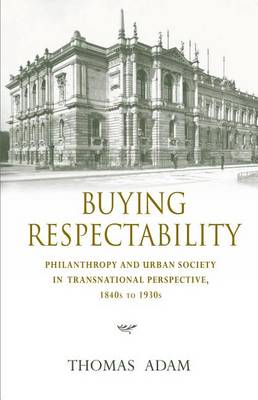Philanthropic and Nonprofit Studies
3 total works
In 19th-century Leipzig, Toronto, New York, and Boston, a newly emergent group of industrialists and entrepreneurs entered into competition with older established elite groups for social recognition as well as cultural and political leadership. The competition was played out on the field of philanthropy, with the North American community gathering ideas from Europe about the establishment of cultural and public institutions. For example, to secure financing for their new museum, the founders of the Metropolitan Museum of Art organized its membership and fundraising on the model of German art museums. The process of cultural borrowing and intercultural transfer shaped urban landscapes with the building of new libraries, museums, and social housing projects. An important contribution to the relatively new field of transnational history, this book establishes philanthropy as a prime example of the conversion of economic resources into social and cultural capital.
In Philanthropy, Patronage, and Civil Society, Thomas Adam has assembled a comparative set of case studies that challenge long-held and little-studied assumptions about the modern development of philanthropy. Histories of philanthropy have often neglected European patterns of giving and the importance of financial patronage to the emergence of modern industrialized societies. It has long been assumed, for example, that Germany never developed civic traditions of philanthropy as in the United States. In truth, however, 19th-century German museums, art galleries, and social housing projects were not only privately founded and supported, they were also blueprints for the creation of similar public institutions in North America. The comparative method of the essays also reveals the extent to which the wealthy classes on both sides of the Atlantic defined themselves through their philanthropic activities.
Contributors are Thomas Adam, Maria Benjamin Baader, Karsten Borgmann, Tobias Brinkmann, Brett Fairbairn, Eckhardt Fuchs, David C. Hammack, Dieter Hoffmann, Simone Lassig, Margaret Eleanor Menninger, and Susannah Morris.

